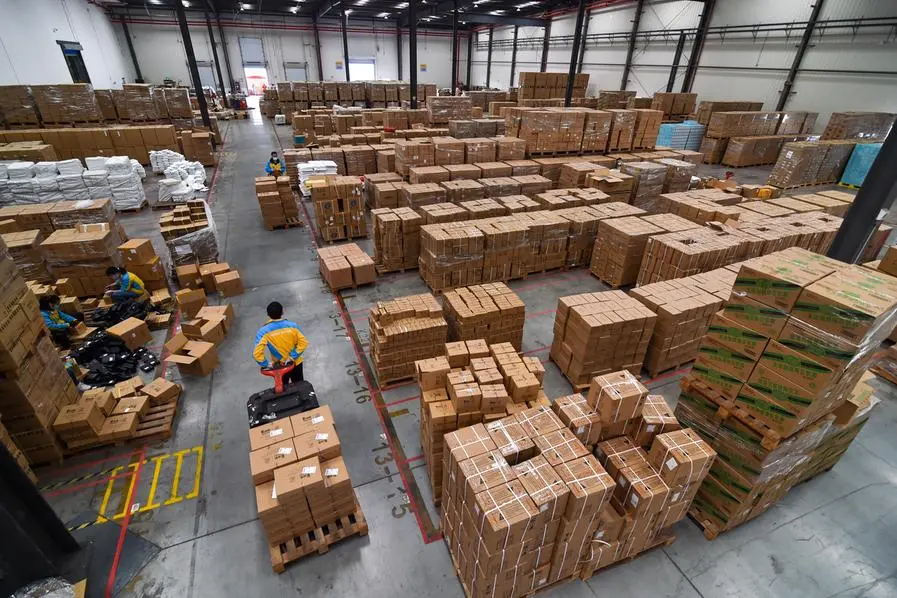PHOTO
China's largest online shopping bonanza wraps up on Monday, with analysts and investors watching for signs that consumption is rebounding in the world's second-largest economy after recent efforts by Beijing to boost activity.
"Singles Day" -- launched by tech giant Alibaba in 2009 -- has ballooned into an annual blockbuster period for retail, with days of discounts luring customers to the country's online shopping platforms.
Its name is a riff on the four ones in its date of November 11, or "11.11" -- the tongue-in-cheek celebration of singlehood is a key driver of sales for Alibaba and its main competitor, JD.com.
Neither firm released detailed sales figures on last year's Singles Day for the second time running, with Alibaba saying only that it recorded growth during the period.
Sluggish domestic consumption is among the top issues now facing policymakers in China, which has struggled to achieve a full post-pandemic recovery.
Beijing has in recent weeks announced a slew of the most aggressive measures in years aimed at bolstering growth, including key rate cuts and increasing the debt limit for local governments.
But many economists argue that in the absence of large-scale fiscal stimulus aimed at encouraging consumer spending, a return to the country's robust pre-pandemic trajectory may be difficult to attain.
This year's Singles Day could represent a major boon for retail giants as analysts watch for signs that recent measures are having an impact.
Analysts from the ING banking group said in a note last week that it expects to see "solid growth numbers" during the event, which it said "should comfortably outpace the overall consumption growth momentum".
At a warehouse visited by AFP on Monday, employees from Chinese e-commerce giant JD.com were seen sorting a steady stream of parcels loaded on conveyor belts.
At the end of the line, workers quickly stacked the packages onto trolleys, before transferring them to scooters for delivery to customers.
Consumer prices in China rose at a slower rate in October, official data showed Saturday, in a further sign of languid demand.
Singles Day 2024 "is expected to generate over 1.2 trillion yuan ($167 billion)... representing a growth of 15 percent compared to the previous year", wrote VO2 Asia Pacific, a consultancy specialising in the digital economy.
While the promotional campaigns could be effective in driving short-term sales, managing partner Vincent Marion warned that the strategy could have negative repercussions.
"Many consumers buy in bulk to reach discount thresholds, only to return the products afterward," said Marion, warning that the practice "erodes profit margins and damages brand perception".
Alibaba, like its main rival JD.com, withheld sales figures on the Singles Day period for the first time ever in 2022, saying instead that sales were flat from the previous year.





















